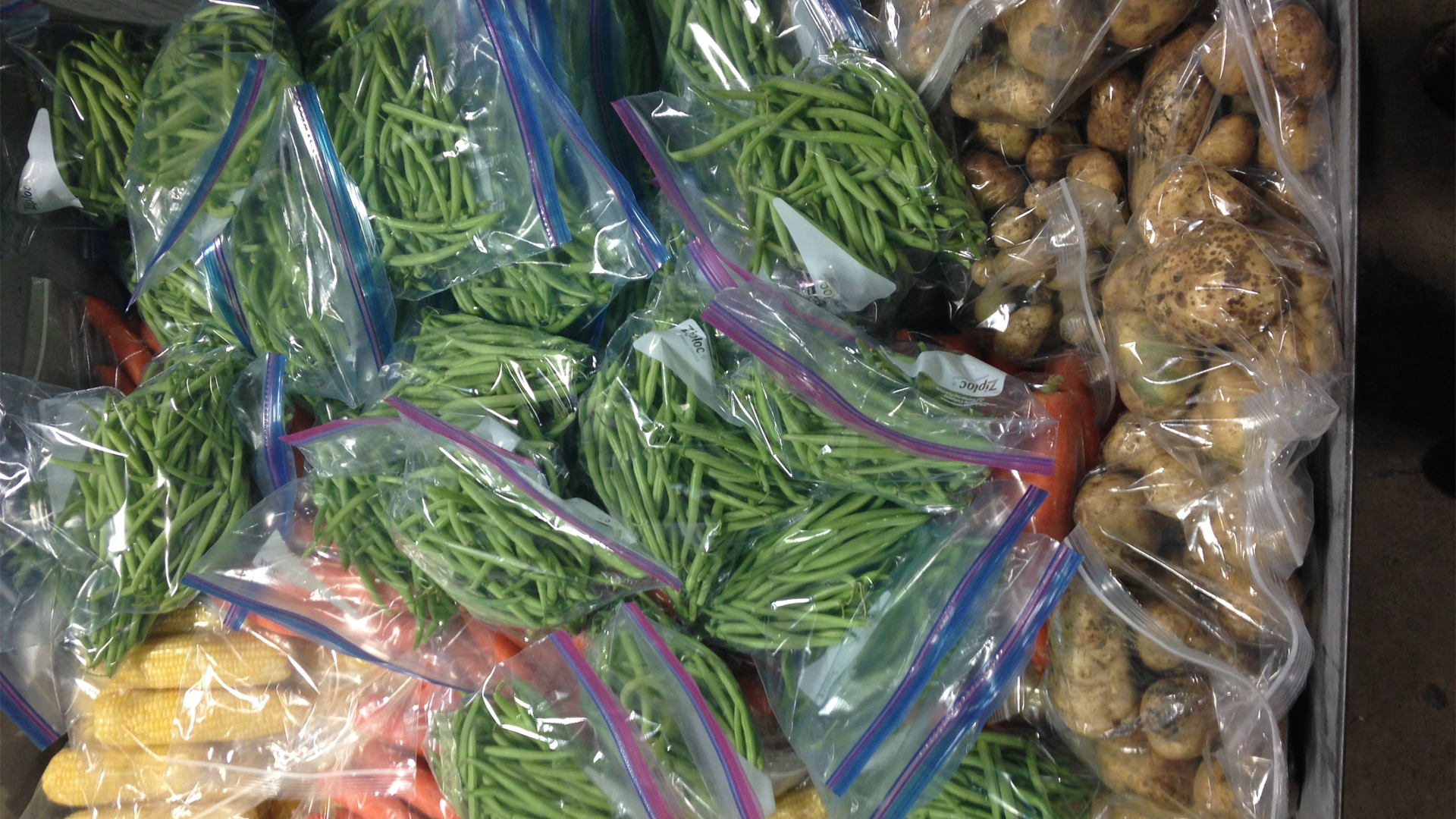
Canada faces two pressing and related sustainability issues: food insecurity and greenhouse gas (GHG) emissions. The pandemic, food price inflation, the Russian invasion of Ukraine and other disruptions have combined to push food insecurity to record levels, while Canada also struggles to meet emissions commitments made under the 2015 Paris Agreement.
Fortunately, there is an important but little-known connection between food insecurity and GHG emissions that involves food banks across Canada. There is also a relatively simple policy shift that could help on both fronts. Food banks have long been recovering edible items and keeping them out of landfill sites, thereby reducing GHG emissions from decomposing. It seems reasonable for this important environmental work to be recognized financially by the federal government.
Our research team based at the University of Manitoba has been awarded a grant through the competitive “One Planet. One Health” initiative of Danone Institute North America (DINA), a non-profit established by international food manufacturer Danone.
The project merges supply chain, carbon-footprint and nutrition perspectives to promote more sustainable food distribution. Our purpose is to identify practices and policy options that ease food insecurity and reduce GHG emissions, while providing affordable and balanced nutrition to Canadians. Our team includes Maria Baranowski, a registered dietician, and Marjorie Bencz, executive director of Edmonton’s Food Bank. For her tireless work in the fight against food insecurity, Marjorie was invested into the Order of Canada in 2007.
Food banks are the last line of defence against food insecurity for many Canadians. Despite the messages in publicly available mandate letters to the federal ministers of agriculture and health, there is a lack of consistent policy support or funding from federal or provincial governments for food banks. Meanwhile, demands on food banks keep rising. For instance, at Edmonton’s Food Bank, the average number of delivered monthly hampers has doubled since 2013. Canadian food banks continue to endure the twin perils of surging demand for food and declining donations.
Their counterparts in the United States are shocked to learn that Canadian food banks pay federal taxes, including the GST and carbon taxes. Carbon taxes follow from essential energy use: electricity to operate coolers; diesel and gasoline to move food around; and natural gas to heat warehouses and operating spaces. These taxes mount up, with carbon taxes also progressively increasing. For Edmonton’s Food Bank alone, we estimate an annual net tax bill of more than $50,000 for GST, and around $30,000 in carbon tax, with the total rising to more than $110,000 by 2030. The tax burden imposed on food banks across Canada easily exceeds $1 million – money these non-profits could be instead using to provide food to Canadians.
Meanwhile, Canada’s progress in reducing GHG emissions is rated low, both internally and internationally. Indeed, Canada is the poorest performer among the G7, according to information from the European EDGAR database, despite ongoing promises. A particular concern is methane gas, a highly potent GHG. Canada is the only G7 country to see methane emissions rise from 2005 to 2021. As such, Environment and Climate Change Canada recently undertook consultations and issued reports on reducing methane emissions from landfills, in particular by diverting organic wastes, including food wastes, which are readily converted by natural processes to methane.
The charitable organization operating Edmonton’s Food Bank, the Edmonton Gleaners Association, became Canada’s first food bank in January 1981. Gleaning or second harvesting involves recovering edible food that otherwise would end up in landfills where it is converted to methane. In 2021, Edmonton’s Food Bank provided more than six million kilograms of food to its clients. More than 60 per cent of this food was gleaned, yielding avoided emissions of more than 4,000 tonnes of carbon dioxide equivalent. Using $50 per tonne as the social cost of carbon, this suggests benefits to Canada of more than $200,000 per year from just one food bank. The social cost of carbon estimates the present value of future damage caused by emissions today, distinct from the price signal implied by carbon taxes.
The Global FoodBanking Network has highlighted key messages from the recent COP27 meeting in Egypt. These include: the inseparability of climate change and food security; the need to work with food banks to reduce food waste as part of climate change mitigation; and the need to feed people today and enable them to feed themselves tomorrow. These messages are designed to inspire policies and practices in nations all over the world. Is the federal government listening?
Ottawa offers generous financial support under a variety of programs for companies developing and promoting technologies to reduce GHG emissions, including methane reduction. We suggest the government should also ease the tax burden and compensate food banks for the positive environmental impact of their work as gleaners. This sort of policy support would make a big difference in helping food banks pursue their primary mission of taking on food insecurity – today and tomorrow.












